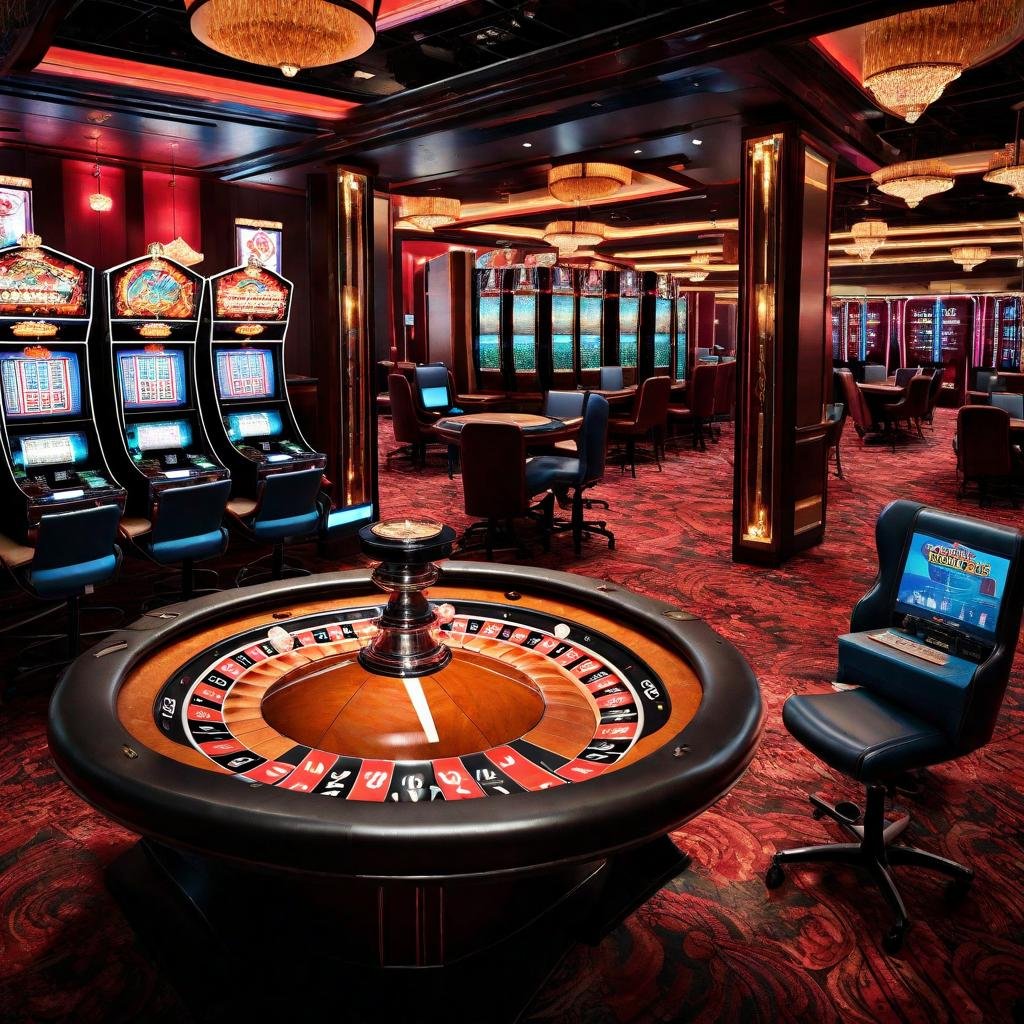When we think of gambling games, the initial pictures that frequently come to mind are those of spinning wheel devices, poker tokens clattering on fabric tables, and cubes flying across a betting surface. While numerous view these games as mere hobbies fueled by chance, a deeper exploration reveals a fascinating blend of strategy, skill, and social engagement that raises them well beyond basic luck. Whether you are a seasoned player or a curious newcomer, understanding the subtleties of these activities can significantly enhance your enjoyment and appreciation.
Casino activities have evolved over centuries, with various cultures contributing to their rich backgrounds and different forms. From the intricate strategies of blackjack to the bluffing methods in poker, players engage in a battle of wits as much as a risk on odds. This exciting interplay between chance and skill creates a exciting atmosphere that draws countless people to casinos worldwide. As we delve into the world of table games, we will reveal the strategies that can tilt the odds in your advantage and the community elements that make these games a favored choice for leisure and engagement.
A Strategy of Casino Gaming
Casino gaming frequently involve a mix of skill and chance, making them fascinating for participants who enjoy a challenge. Each game has their unique set of rules and strategies that can influence the results. For instance, in titles like blackjack, participants are required to use tactics like card counting and grasping the odds to make smart decisions. This skill set can significantly improve the winning potential, distinguishing seasoned participants from beginners who may rely solely on luck.
In contrast, titles such as roulette may appear to be purely based on luck, but tactical thinking can also come into the equation. Participants can select between various betting tactics, such as the Martingale strategy, in which they raise the wagers after a loss. This method can establish a more controlled approach to the game. Grasping the odds of specific wagers can also help participants make smarter decisions on the table, demonstrating that even in games of chance, tactics can enhance the enjoyment.
Furthermore, poker stands out as a title that strongly focuses on tactics. Unlike most casino games, the game of poker combines ability, mental acuity, and chance. Players must not only focus on the hands they are dealt but also consider their opponents behavior and wagering patterns. Mastering concepts like position, pot odds, and interpreting bluffs is crucial for winning. This complexity of tactics in poker often leads to a more engaging experience for participants, as their choices and abilities significantly impact the game’s results.
Understanding Chance and Odds
In the domain of gambling matches, probability and ratios play a critical role in determining a gambler’s potential outcomes. Every game has its own set of guidelines that define how the probability of winning or failing is measured. https://d2ol.com/ For example, in games like 21, players have a chance to influence their ratios through planning, whereas in games like roulette, the results are exclusively governed by chance. Grasping how these probabilities are measured can significantly affect how a player deals with the match.
Ratios are typically shown in two formats: fractional and decimal. Fractional odds indicate the ratio of the sum gained to the sum staked, whereas decimal ratios show the overall payout for a winning wager, including the stake. For instance, if a match has odds of 5 to 1, this implies that for every one unit bet, a player could win five dollars if successful. Learning how to interpret these ratios enables players to evaluate their possible earnings and formulate more informed decisions during gameplay.

Gamblers should also be conscious of the house edge, which is the casino’s inherent advantage over the gamblers. Each game has a distinct advantage, and comprehending this concept is crucial for managing one’s hopes and bankroll. Activities with a lower advantage, such as 21 and baccarat, typically offer superior ratios for players compared to activities like slots and keno. By understanding the connection between chance, ratios, and the casino advantage, players can improve their gambling engagement and strategize more effectively.
The Social Aspect of Casino Table Games
Casino games at gaming establishments are often seen as a hub of community engagement, bringing participants together in a collective experience that goes far past the mere act of gambling. The atmosphere at a poker table can be vibrant, with players engaging not only with the game itself but also with one another. Joy, excitement, and, sometimes, playful teasing create connections that improve the overall enjoyment of the gaming experience. This communal aspect can turn a alone endeavor into a lively gathering, making casino games particularly appealing.
One of the intriguing elements of table gaming is the way it cultivates friendship among participants. Whether it’s collaborating to beat the dealer at a craps table or exchanging tales between hands in a card game, the environment encourages interaction. Players often share tips or tactics, creating a sense of togetherness that boosts the fun. This interpersonal atmosphere can make new gamblers feel included and less intimidated by the competitive nature of casino games. As the game continues, friendships may form, leading to a sense of belonging that keeps participants coming back to the table.
Moreover, the social aspect of table gaming extends beyond just the players. Casino staff play a crucial role in encouraging interaction and maintaining the flow of the game. Their ability to engage players with warm dialogue and their expertise in running the table can create an welcoming atmosphere. This relationship between participants and dealers adds another layer of enjoyment, where gamblers feel connected not only to each other but also to the staff. Such interactions are often what make the experience unforgettable, as participants leave with tales to tell and connections made, reinforcing the notion that gaming at tables are truly about more than just chance.